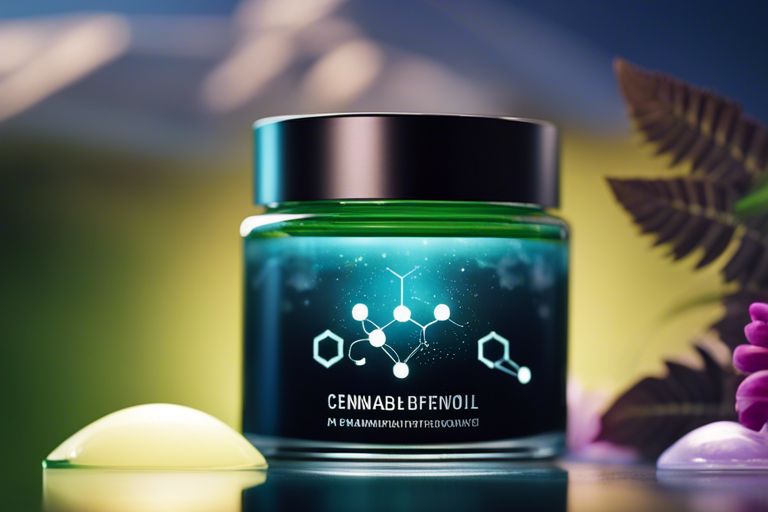The Lesser-Known CBG Cannabinoid That Changes Your Health Game

It’s time you discovered CBG, the underappreciated cannabinoid that may redefine your understanding of health. While many are familiar with THC and CBD, CBG (cannabigerol) stands in the shadows, quietly boasting a plethora of potential benefits. From its anti-inflammatory properties to its ability to combat anxiety and support digestive health, CBG could be the key to unlocking a better, healthier you. As the world of cannabinoids evolves, embracing CBG might just change the way you approach your wellness journey.
Key Takeaways:
- CBG’s Benefits: CBG, or Cannabigerol, is emerging as a cannabinoid with potential health benefits including anti-inflammatory and neuroprotective properties.
- Non-Psychoactive: Unlike THC, CBG is non-psychoactive, making it a safe option for those who want to avoid the high associated with cannabis use.
- Research Potential: Ongoing studies suggest that CBG could play a role in managing conditions such as anxiety, pain, and even certain neurodegenerative diseases.
1. CBG is a non-psychoactive cannabinoid from cannabis plants.
2. It may reduce inflammation and alleviate pain effectively.
3. CBG can promote neuroprotection and support brain health.
4. Potentially aids in appetite stimulation for increased calorie intake.
5. Research suggests benefits for anxiety and depression relief.
6. CBG is gaining popularity in the wellness industry.
What is CBG?
To understand CBG, or cannabigerol, you first need to know that it is one of the many cannabinoids found in the cannabis plant. While often overshadowed by its more famous counterparts, CBD (cannabidiol) and THC (tetrahydrocannabinol), CBG is gaining recognition for its unique properties and potential health benefits. It’s sometimes referred to as the “mother of all cannabinoids” because it serves as a precursor to both CBD and THC. This lesser-known compound may hold the key to a range of therapeutic applications that could significantly impact your health.
For a more in-depth look, you can check out CBG: The Game-Changing Cannabinoid. This article explores the potential that CBG has to offer, especially if you’re seeking alternatives for healthier living or natural remedies. As research continues to expand, your awareness of CBG could very well shape your understanding and choices in cannabinoid therapies.
The Discovery of CBG
With the cannabis landscape evolving rapidly, the discovery of CBG is a relatively recent phenomenon. Scientists have been focusing primarily on CBD and THC for much of the past few decades, often overlooking the benefits of CBG. However, as research progresses, we are beginning to uncover a variety of therapeutic properties that this cannabinoid possesses, ranging from anti-inflammatory effects to potential neuroprotective benefits. As you probe deeper into the world of cannabis, you may find that CBG is a fascinating area worth exploring.
With more studies highlighting the significance of cannabigerol, it’s becoming increasingly clear that CBG could play a vital role in future cannabinoid therapies. Your understanding of its properties can help you make informed decisions regarding your health and wellness, especially in combination with other cannabinoids or as part of a broader health regimen. As new research emerges, the introduction of CBG into mainstream conversations about cannabinoids is becoming inevitable.
How CBG Differs from CBD and THC
With a growing body of research, it’s crucial to recognize how CBG stands apart from both CBD and THC. While CBD is well-known for its calming properties and is often used for anxiety and stress relief, THC is famous for its psychoactive effects and is typically associated with the ‘high’ sensation. CBG, on the other hand, does not produce any psychoactive effects, making it an intriguing option for those seeking the medicinal benefits of cannabis without the high that THC provides.
Differs notably in its chemical structure and the way it interacts with the body. CBG binds primarily with the CB1 and CB2 receptors in your endocannabinoid system but does so in a way that has less psychoactivity compared to THC and may enhance the effects of CBD. Additionally, CBG is thought to have anti-inflammatory, antibacterial, and even neuroprotective properties, making it a compelling alternative to explore. As you consider the roles that these cannabinoids might play in your health regimen, understanding these differences can empower you to make choices that align with your wellness goals.
The Science Behind CBG
One of the most fascinating aspects of Cannabigerol, or CBG, is its unique way of interacting with the human body. This lesser-known cannabinoid, often overshadowed by its more famous counterparts, THC and CBD, possesses properties that could potentially reshape your understanding of health. By targeting specific receptors in the brain and body, CBG is believed to help maintain balance and homeostasis within your systems, thus playing a crucial role in your overall well-being.
How CBG Interacts with the Body
Any conversation about cannabinoids inevitably leads to their function and what they can do for you. CBG works primarily by binding to cannabinoid receptors, particularly the CB1 and CB2 receptors, located throughout your body. Unlike THC, CBG does not produce psychoactive effects, which means you can experience its benefits without altering your state of mind. Instead, CBG has been shown to influence your body in ways that promote relaxation and relief from various ailments.
Moreover, CBG can enhance the effectiveness of other cannabinoids. This is known as the “entourage effect,” which indicates that the combined application of different cannabinoids can yield more robust therapeutic results than using any one cannabinoid on its own. Therefore, supplementing your wellness routine with CBG could complement your existing strategies and amplify the effects of the naturally occurring substances already present in your body.
The Role of CBG in the Endocannabinoid System
On a broader scale, understanding how CBG plays a role in the endocannabinoid system (ECS) is important for grasping its significance in health and wellness. The ECS is a complex network of receptors, endocannabinoids, and enzymes that work together to regulate various physiological processes, including mood, memory, pain, and inflammation. CBG acts as a precursor to other cannabinoids, meaning it’s instrumental in forming compounds like THC and CBD that you may already be familiar with.
It’s important to recognize that CBG’s presence in the ECS can potentially lead to numerous positive health outcomes. Research suggests that CBG may exhibit neuroprotective properties, making it a candidate for supporting brain health. Additionally, its anti-inflammatory and antibacterial capabilities can contribute to addressing various health challenges, aligning with modern health trends that emphasize a more holistic approach to wellness. The more you understand about CBG’s role in the ECS, the clearer it becomes how this lesser-known cannabinoid might just be the secret weapon in your health arsenal.
Potential Health Benefits of CBG
Unlike its more famous counterparts, THC and CBD, CBG, or cannabigerol, often flies under the radar in discussions about cannabinoid benefits. However, recent research suggests that this lesser-known cannabinoid could significantly impact your health and well-being. As you examine into the potential benefits of CBG, you may discover that its effects extend far beyond mere anecdotal evidence, pointing to a genuine reevaluation of what cannabinoids can do for your body and mind.
Reducing Inflammation and Pain
Reducing inflammation is one of CBG’s most prominent benefits, making it a potential game-changer for individuals suffering from chronic pain and inflammatory disorders. Studies have shown that CBG may inhibit inflammatory responses in the body, which can significantly reduce discomfort and improve mobility. For many, traditional medications can come with a host of side effects, but CBG offers a natural alternative that may provide relief without the unwanted consequences.
Moreover, CBG’s potential to interact with the body’s endocannabinoid system could further enhance its pain-relieving properties. This system plays a critical role in regulating pain sensation, and by influencing its activity, CBG may help temper your body’s perception of pain, leading to a better quality of life.
Improving Sleep Quality
For those nights when you struggle to fall asleep, CBG may hold the key to improved sleep quality. Early research indicates that cannabigerol can promote an increase in sleep duration, allowing you to enjoy a deeper and more restorative sleep cycle. If you’ve endured sleepless nights due to racing thoughts or physical discomfort, incorporating CBG into your routine might just be the solution you’re looking for.
Pain often disrupts your sleep patterns, making it challenging to achieve the rest you deserve. By addressing inflammation and discomfort, CBG can promote longer, uninterrupted sleep, leaving you feeling refreshed and rejuvenated. This is especially vital in today’s fast-paced world, where a good night’s sleep has become a precious commodity.
Supporting Mental Health
Health is often a reflection of your emotional well-being, and CBG may offer promising support for various mental health concerns. Preliminary studies suggest that CBG could potentially act as an anti-anxiolytic, working to alleviate anxiety and improve mood. You may find that a little CBG could go a long way in creating a sense of calm and balance in your mind.
This effect is particularly relevant in a society where stress and anxiety have risen to epidemic levels. Instead of relying solely on conventional pharmaceutical treatments that often come with significant side effects, you might explore CBG as a natural alternative to help manage your mental health more effectively. The appeal lies in its ability to provide relief while remaining gentle on the body.

CBG and Anxiety
Your mental health plays a crucial role in your overall well-being, and understanding how various substances can impact it is important. One lesser-known cannabinoid, Cannabigerol (CBG), is gaining attention for its potential therapeutic benefits, particularly when it comes to anxiety. For those who may be uncertain, you might find it enlightening to explore the Cannabigerol (CBG): Uses and Benefits as it provides an in-depth look at its properties.
The Anxiolytic Effects of CBG
For individuals struggling with anxiety, finding an effective treatment can sometimes feel like navigating a minefield. Emerging research suggests that CBG has notable anxiolytic (anxiety-reducing) properties, which could provide a natural alternative to more conventional medications. Initial studies indicate that CBG interacts with the endocannabinoid system, particularly with cannabinoid receptors that play a significant role in regulating stress responses and emotional regulation.
Not only does CBG act on these receptors, but it also seems to enhance serotonin levels in the brain, akin to the mechanisms of popular antidepressants. This could be a game-changer for those frequently encountering anxiety-related symptoms, offering a potentially less harmful option than traditional pharmaceuticals.
How CBG Compares to Traditional Anxiety Treatments
Compares to traditional anxiety treatments such as SSRIs and benzodiazepines, CBG has shown a less intimidating profile with fewer side effects. Here’s a comparative look at some vital aspects:
| Traditional Treatments | CBG |
| Often accompanied by serious side effects, such as weight gain, insomnia, or dependency | May offer anxiety relief with minimal adverse effects reported |
| Long onset times, sometimes requiring weeks to effectively work | Potential for faster action in managing anxiety |
| Can lead to withdrawal symptoms when discontinuing | Possibly reduces the risk of dependency or withdrawal |
It’s important to recognize that while CBG is exciting in its potential applications for anxiety, more research is needed to comprehensively understand its effects. It may present a new frontier in treating anxiety, representing a departure from conventional options that often come with significant challenges. Investigating CBG might lead you to a more appealing alternative, yet consulting with a healthcare professional before making changes to your treatment regimen is always advised.
CBG and Inflammation
Once again, the world of cannabinoids reveals a lesser-known hero, and it comes in the form of CBG, or cannabigerol. While many have heard of CBD and THC, CBG is quietly making its mark, particularly when it comes to healing and health. One area where CBG shines remarkably is in its ability to combat inflammation—an underlying factor in many chronic diseases, from arthritis to heart disease. As we investigate into this cannabinoid’s potential, it’s imperative to understand precisely how CBG can impact your overall well-being.
The Anti-Inflammatory Properties of CBG
One of the most compelling features of CBG is its anti-inflammatory properties. Research suggests that CBG interacts with your endocannabinoid system, helping to regulate inflammation at the cellular level. This mechanism, in essence, provides a pathway for reducing the immune system’s overactive responses, which is often the root cause of chronic inflammation. By lowering those internal alarm bells, CBG not only helps mitigate pain but also promotes better overall health and recovery.
CBG’s Potential in Treating Chronic Inflammatory Conditions
Anti-inflammatory research highlights CBG’s potential in addressing various chronic inflammatory conditions that afflict millions. Conditions like Crohn’s disease and inflammatory bowel syndrome can cause debilitating symptoms that diminish your quality of life. With CBG potentially helping to reduce inflammation associated with these conditions, it opens doors for therapies that could alleviate suffering without the significant side effects commonly seen in traditional treatments. It’s imperative to recognize the power of this cannabinoid—it’s not just a fad, but a promising avenue for better health.
To put it plainly, if you’re grappling with the weight of chronic inflammation, CBG offers a glimmer of hope. This remarkable compound stands out as a natural alternative to pharmaceutical options rife with side effects. Its ability to down-regulate inflammation could pave the way for viable treatments, transforming your health experience. As you consider options for managing inflammation, CBG warrants a closer look—its implications could very well redefine your approach to long-standing health challenges.
The Future of CBG Research
After years of being overshadowed by its more famous cousin, THC, Cannabigerol (CBG) is stepping into the spotlight, igniting a wave of interest among researchers and health enthusiasts alike. As you research into the world of cannabinoids, you might begin to wonder just how much potential CBG holds for improving your health. With its myriad of possible benefits, the future of CBG research promises excitement and groundbreaking discoveries that could reshape how we view cannabis and its role in medicine.
Current Studies and Findings
To understand the future landscape of CBG research, it’s vital to first examine the current studies that have begun to illuminate the cannabinoid’s properties. Preliminary research suggests that CBG may have anti-inflammatory, antimicrobial, and even anti-anxiety effects. Scientists are particularly interested in how CBG interacts with the endocannabinoid system, which plays a crucial role in regulating various bodily functions including mood, pain perception, and immune response. Notably, a recent study indicated that CBG could potentially hinder the growth of certain cancer cells, making it a promising candidate for further investigation in oncology.
To expand on this, researchers have also begun to explore CBG’s effects on conditions such as glaucoma and neurodegenerative diseases. As awareness grows and funding increases, more comprehensive clinical trials are expected to provide deeper insights into the full spectrum of CBG’s therapeutic potential. Your curiosity about how these findings could impact your well-being is justified, as the implications of this research may lead to new treatments that prioritize safety and efficacy.
Potential Applications of CBG in Medicine
On a broader scale, the potential applications of CBG in medicine are as intriguing as they are diverse. Imagine a future where CBG becomes a staple in treating conditions such as chronic pain, anxiety disorders, and inflammatory diseases. The growing body of evidence points to CBG as possessing characteristics that could enhance the quality of life for countless individuals suffering from these ailments. Coupled with its non-psychoactive properties, CBG stands out as a viable alternative for those seeking relief without the intoxicating effects associated with THC.
It’s exhilarating to think that as research expands, we might uncover even more revolutionary uses for CBG. Its potential as a neuroprotective agent could pave the way for treatments addressing Alzheimer’s and Parkinson’s diseases, giving hope to those affected by such devastating conditions. You may soon find yourself contemplating how CBG can fit into your own health regimen, whether as a preventative measure or a complementary treatment. The journey into the world of CBG is just beginning, and the unfolding chapters of its story could lead to transformative health benefits for you and many others.
Conclusion
Now that you’ve been introduced to CBG, it’s clear that this lesser-known cannabinoid holds immense potential for transforming your health game. Much like the revolutionary concepts that Malcolm Gladwell explores in his writings, CBG challenges conventional wisdom, inviting you to rethink your understanding of cannabinoids and their multifaceted benefits. By delving into the world of CBG, you open yourself up to a treasure trove of therapeutic possibilities that could enhance your well-being in ways you may not have considered before.
Embracing CBG is not just about hopping on the wellness trend; it’s about empowering yourself with knowledge. As you explore this uncharted territory, remember that the journey to better health often requires curiosity and a willingness to embrace the unknown. So, whether you’re seeking relief from anxiety, desire to boost your focus, or simply wish to improve your overall quality of life, CBG may just be the key to unlocking the experiences you’ve been missing. Your path to a healthier, more balanced life could very well start with this minor cannabinoid—one that deserves a spotlight on the health stage.
FAQ
Q: What is CBG and how does it differ from other cannabinoids like CBD and THC?
A: CBG, or cannabigerol, is a non-psychoactive cannabinoid found in cannabis. Unlike CBD (cannabidiol) and THC (tetrahydrocannabinol), which are more well-known and studied cannabinoids, CBG is considered a precursor to both. As the cannabis plant matures, CBG is converted into THC and CBD, making it less abundant in fully matured plants. While CBD is often used for its therapeutic effects without the high associated with THC, CBG is gaining interest for its potential benefits, including anti-inflammatory properties, neuroprotective effects, and its ability to stimulate appetite.
Q: What potential health benefits are associated with CBG?
A: Research into CBG is still in its early stages, but preliminary studies suggest it could offer several health benefits. CBG has shown promise in reducing inflammation, which may be beneficial for conditions like Crohn’s disease and arthritis. Additionally, some studies indicate that CBG could have antibacterial properties, particularly against drug-resistant strains of bacteria. Furthermore, there is emerging evidence suggesting that CBG may help with neurodegenerative diseases, such as Huntington’s disease, by protecting brain cells. However, more extensive clinical trials are needed to confirm these effects in humans.
Q: How can I incorporate the CBG cannabinoid into my wellness routine?
A: CBG can be consumed in various forms, including oils, capsules, edibles, and even topical creams. When choosing CBG cannabinoid products, it’s important to choose high-quality, lab-tested options from reputable manufacturers to ensure potency and purity. The method of consumption may vary based on personal preference and desired effects. For instance, sublingual oils may provide quicker relief, while edibles may offer longer-lasting effects. As with any supplement, it’s advisable to consult with a healthcare professional before incorporating CBG into your routine, especially if you are taking other medications or have underlying health conditions.










